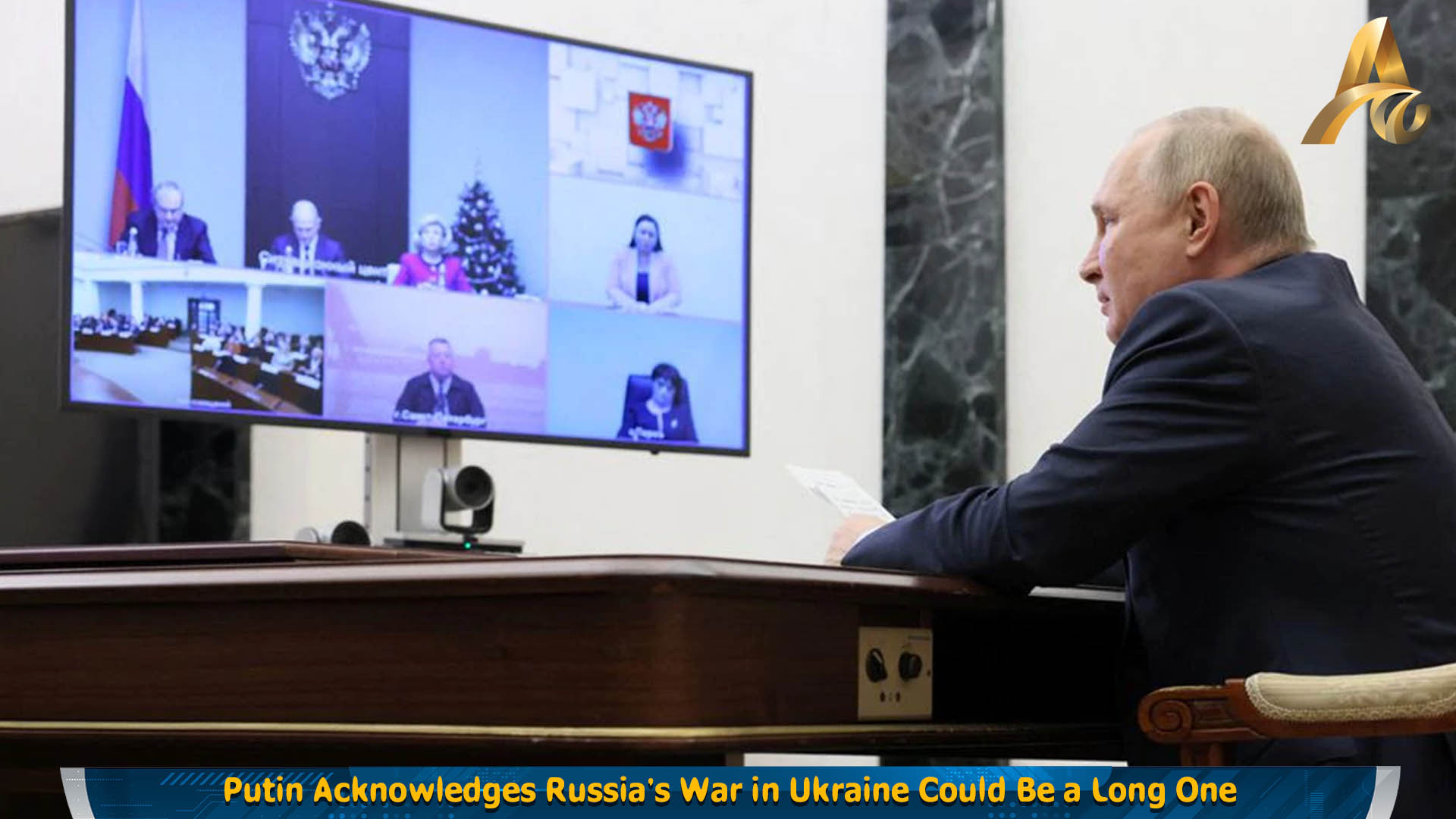KYIV: Russian President Vladimir Putin has acknowledged that his army could be fighting in Ukraine for a long time, but for now there will be no second call-up of soldiers.
Putin has rarely spoken about the duration of a war that he began more than nine months ago but told loyalists in a televised meeting on Wednesday it could go on for some time yet.
"This can be a long process," he said.
Russia has been forced into a series of significant retreats in the face of Ukrainian counter-offensives, waged with increasing stocks of Western weaponry, in the east and south since July.
Russia launched what it calls its "special military operation" in February, saying Ukraine's deepening ties with the West posed a security threat. Ukraine and its allies say the invasion amounts to an imperialist land grab.
Putin, in his remarks, said the risk of a nuclear war was growing but Russia would not recklessly threaten to use such weapons.
"We haven't gone mad, we realize what nuclear weapons are," Putin said. "We have these means in more advanced and modern form than any other nuclear country ... But we aren't about to run around the world brandishing this weapon like a razor."
German Chancellor Olaf Scholz said in an interview published on Thursday that the risk of Putin using nuclear weapons had decreased in response to international pressure.
MOBILISATION
About 150,000 of the 300,000 reservists called up in September and October had been deployed in Ukraine, 77,000 in combat units, Putin said. The remaining 150,000 were still at training centers.
"Under these conditions, talk about any additional mobilization measures simply makes no sense," Putin said.
Russia's economy has overcome the short-term slump caused by the partial mobilization order, but the disinflationary impact it had in reducing consumer demand has practically disappeared, the central bank said on Wednesday.
Despite recent retreats on the battlefield, including the loss of Kherson, the one Ukrainian provincial capital Russia captured, Putin has said he has no regrets about launching a war that has become Europe's most devastating since World War Two.
He said Russia had achieved a "significant result" with the acquisition of "new territories" - a reference to the annexation of four partly occupied regions in September that Ukraine and most members of the United Nations condemned as illegal.
Russian forces have fired more than 1,000 rockets and missiles at Ukraine's power grid, which is still working despite taking major damage, Interfax Ukraine news agency reported on Wednesday, citing the chief executive of the Ukrenergo grid operator.
Eight recent waves of Russian air strikes on critical infrastructure have seriously damaged the grid and led to emergency and planned outages across the country, including in the capital Kyiv, a city of three million.
Mayor Vitali Klitschko warned of an "apocalypse" scenario without power, running water or heat this winter if Russian air strikes on infrastructure continue. He said there was no need for residents to evacuate now, though they should be ready to do so.
Kyiv could be left without central heating at a time when temperatures can fall as low as -15 Celsius, Klitschko said in an interview with Reuters.
PLAYING THE BELARUSIAN CARD?
Russia's ally Belarus said it was moving troops and military hardware to counteract what it called a threat of terrorism, amid signs that Moscow may be pressing Minsk to open a new front in Ukraine.
President Alexander Lukashenko, who relied on Russian troops to put down a popular revolt two years ago, has kept his own army from joining the war in Ukraine. Russian Defence Minister Sergei Shoigu flew unannounced to the capital Minsk on Saturday, and he and Belarusian counterpart Viktor Khrenin signed amendments to a security cooperation agreement, without disclosing the new terms.
On Wednesday, the Belarusian Security Council, quoted by state news agency Belta, said troops and hardware would be moving in the country over the next two days, with imitation weapons used for training. It provided no details about the number of troops or types of hardware that would be moved.
Thousands of Russian troops have deployed in Belarus since October, Ukraine says, and Belarus authorities have increasingly spoken of a threat of "terrorism" from partisans operating from across the border.
(SOURCE: Reuters)























